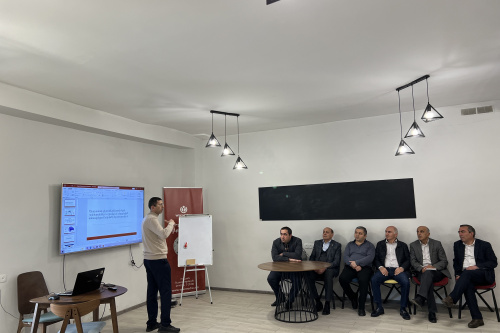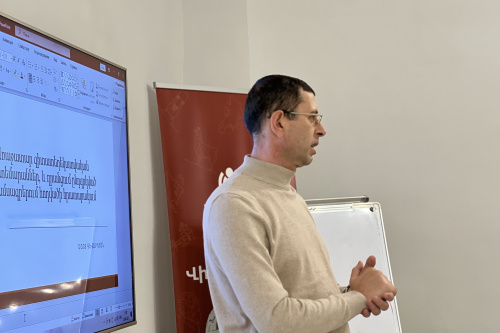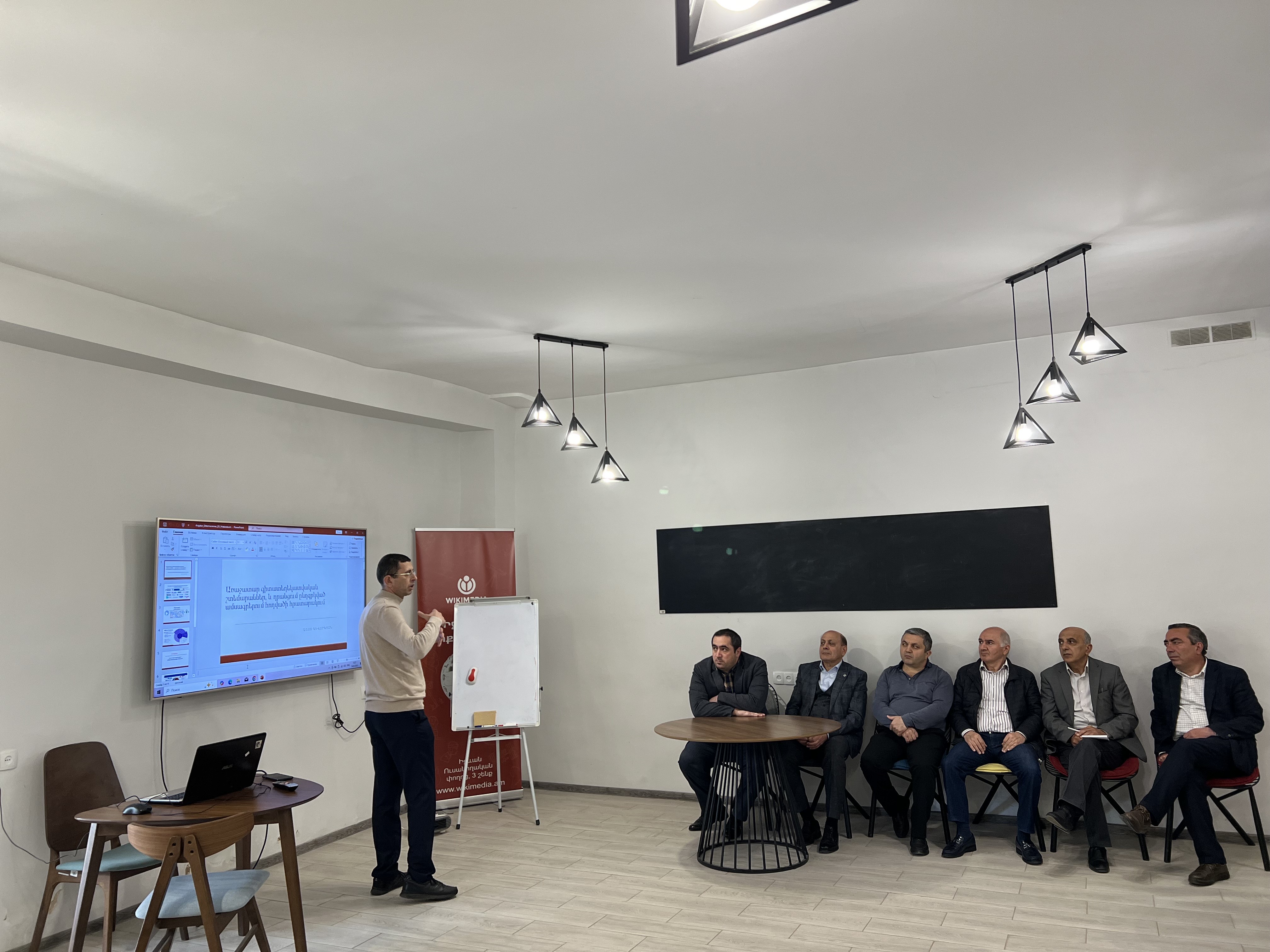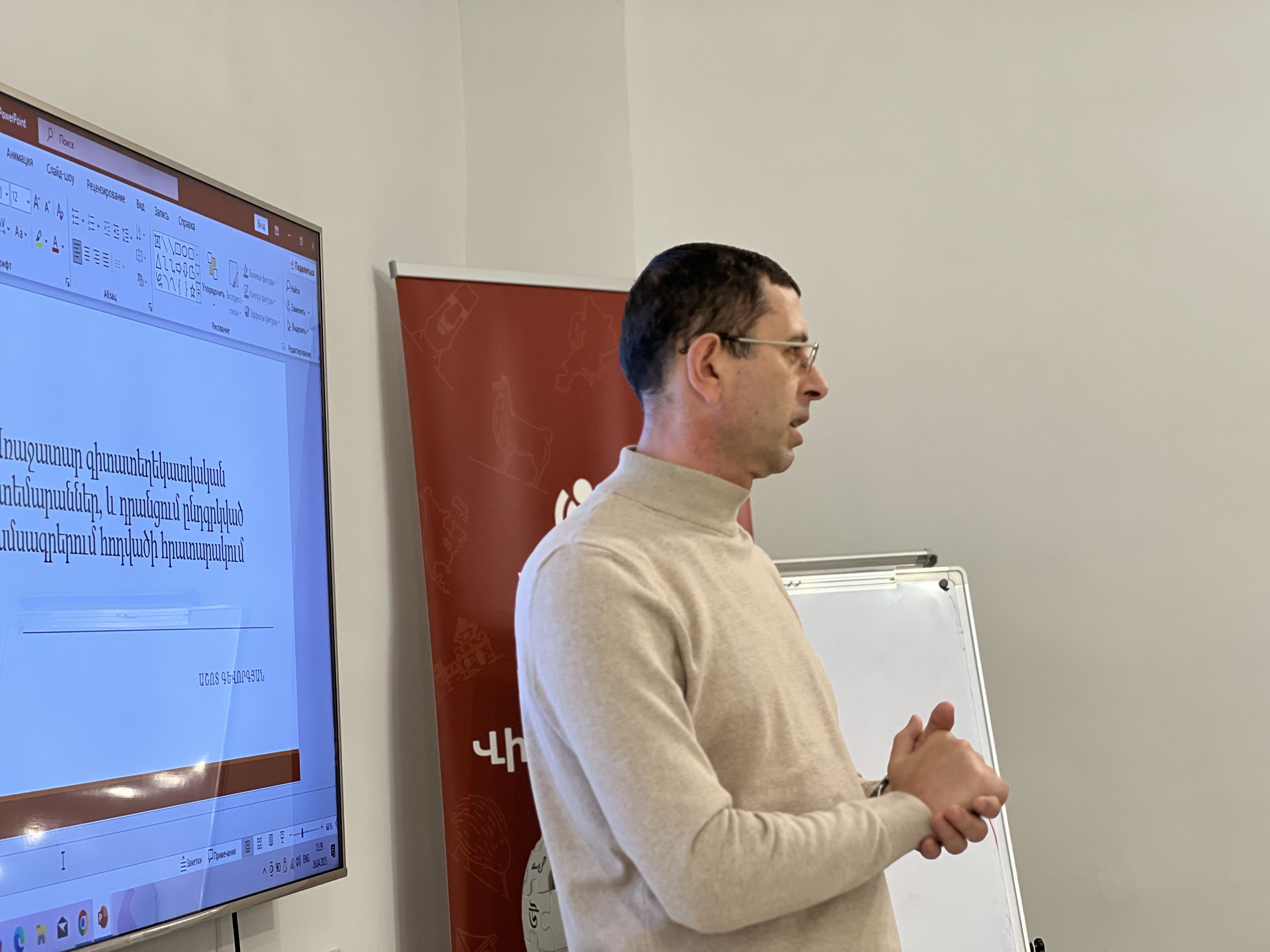- Main
- News and events
- A training course on "Leading scientific information databases and the process and requirements for publishing in journals included there” was launched at YSU IB
Ijevan Branch of YSU
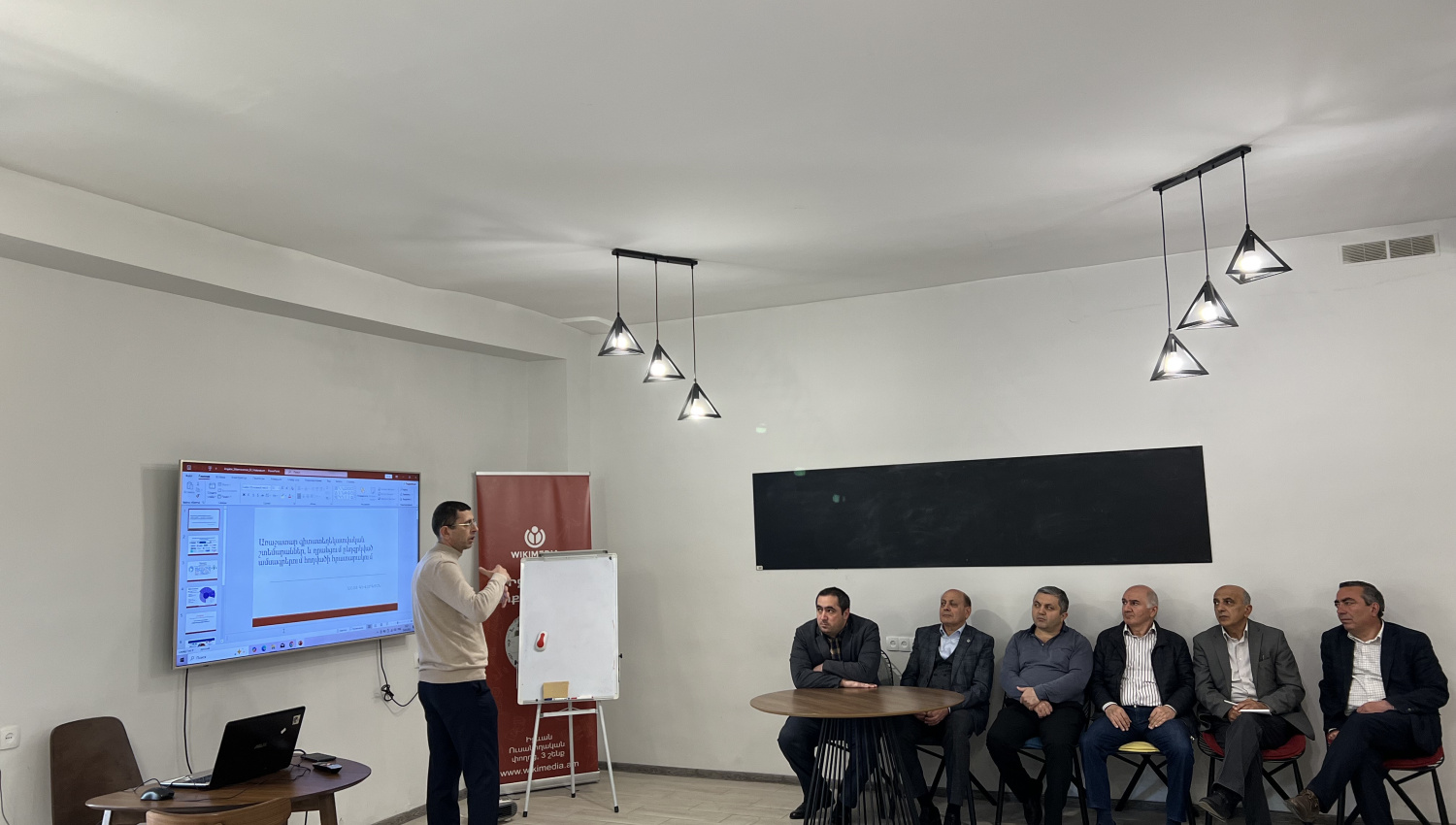
On April 26, 2025 a training course on "Leading scientific information databases and the process and requirements for publishing in journals included there" was launched at YSU IB, organized by the Department of Educational Reforms and Quality Assurance.
The course was attended by members of the YSU IB Board of Directors, professors and administrative staff, and was conducted by the responsible editor of the "Banber Yerevan University" journal, PhD Ashot Gevorgyan.
During the training it was presented why Scopus, Web of Science, Google Scholar and other large databases have become the "world map" of science, regulating the quality, transparency and impact of scientific communication. It was explained how Cite Score, Impact Factor and h index are formed and calculated, why they replace each other in different research fields and what limitations they have when we try to "translate" these numbers into the language of scientific value.
The internal structure of databases was also discussed, how a journal receives documentation, what stages it goes through - from initial indexing to ongoing monitoring, and why some new journals quickly reach the top quartile, while older publications sometimes fall off the lists. One important section was presented - the separation of "predatory" publishers. It was explained by what signals one can distinguish a dubious publishing platform from a reputable journal, what a "fake" ISSN or an excessively fast circulation of correspondence means, and what Beall's List is.
The training will then focus on the minimum requirements for articles by leading journals (from research ethics and data transparency to text structure), language editing and open access policies. The key role of the “cover letter”, different review models and practical tricks that reduce the number of “revise & resubmit” stages will be presented. The issue of APC (Article Processing Charge) fees of journals and their realistic assessment will be discussed, when the fee is an investment and when it is just a myth, what options are there for budgeting or taking advantage of discounts. The course participants will be provided with advice on journal selection, methodological compliance or language editing.
Spread the article



